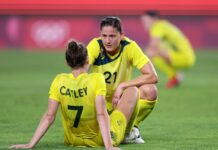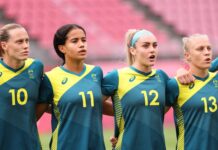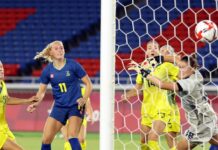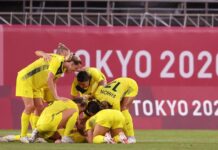
| Head Coach: | Asako Takakura | Group: | E |
| Confederation: | AFC | Ranking: | 11 Highest 3 (2011-2013) Lowest 14 (2003) |
| Federation: | Japan Football Association | ||
| Social Media: | |||
Over the past 15 years Japan has consistently ranked in the top ten of international women’s football teams. It is incredible to think that their World Cup victory over the United States happened a decade ago.
In the years since Homare Sawa’s deft backheel and Saki Kumagai’s decisive penalty kick earned the team a place in history and a star on their chests, Nadeshiko has continued its domination of Asian and world football. Winning both the 2014 and 2018 Asian Cups, Japan also finished as runners-up at the 2012 London Olympics and 2015 World Cup – falling at the final hurdle on both occasions to rival the United States.
Away from the big tournaments, Japan has been quietly undergoing a transition both on and off the pitch. Gone are Queen Sawa, Aya Miyama, W-League fan favourites Yūki Nagasato and Yukari Kinga, and manager Norio Sasaki; in their stead are the likes of Aston Villa striker Mana Iwabuchi, Milan midfielder Yui Hasegawa, and New York-born OL Reign striker Yuka Momiki, all playing under the watchful eye of Asako Takakura, herself a former Nadeshiko midfielder. Despite these changes, the team has stayed true to its playing style and identity, maintaining an incredible discipline of defensive shape, deft technique, and ruthless finishing when opportunities present themselves.
Squad
Goalkeepers
- Sakiko Ikeda
- Ayaka Yamashita
Defenders
- Nanami Kitamura
- Saki Kumagai
- Moeka Minami
- Asato Miyagawa
- Risa Shimizu
- Saori Takarada
Midfielders
- Jun Endo
- Yui Hasegawa
- Narumi Miura
- Emi Nakajima
- Yuzuho Shiokoshi
- Hina Sugita
Forwards
- Mana Iwabuchi
- Yuka Momiki
- Yuika Sugasawa
- Mina Tanaka
Reserves
- Honoka Hayashi
- Chika Hirao
- Momoka Kinoshita
- Shiori Miyake
Coach
A seven-time AFC Women’s Coach of the Year, Asako Takakura is one of the few coaches across all levels of Asian football who can genuinely claim to have dominated her field over the last decade. Having been capped by Nadeshiko 79 times between 1986 and 1999, the Fukushima-born midfielder represented her country at the 1991 and 1995 World Cups, as well as the Atlanta 1996 Olympics.
After hanging up her boots in 2004, Takakura became just the third woman to achieve her Japanese S-Class coaching licence – the equivalent of the UEFA Pro licence – in 2011. Over the next decade, Takakura was named Asia’s best women’s coach every year bar one (2016 – won by Chan Yuen-ting of Hongkongese men’s team Eastern Sports Club), and led her teams to Asian or World Championships at every level: Asian Champions with the under-16s in 2013, and World Cup winners with the same team at under-17 level the following year; Asian Champions with the under-19s in 2015; and both Asian Cup and Asian Games winners at senior level in 2018.
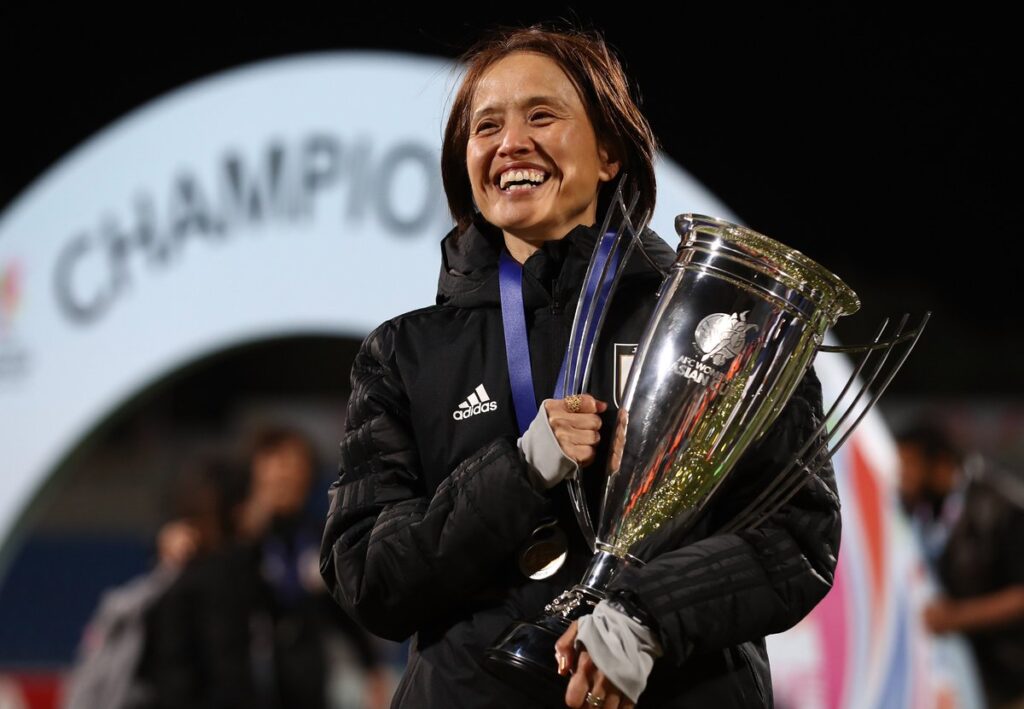
Boasting one of the most impressive resumes in world football, Takakura has maintained her predecessor’s structure and organisation. She usually deploys a glacially-patient diamond 4-4-2 with the intent of suffocating oppositions into mistakes in midfield before either counter-attacking with breakneck speed or slowly tiki-taka-ing their way through stacked but staggered defensive setups. Takakura’s international experience on and off the pitch puts her side in a good position, keeping her players’ heads screwed on as they aim for their first-ever Olympic gold medal in their home games.
Last Olympics
Japan claimed the silver medal at London 2012 but did not feature at Rio 2016. Matildas fans will likely remember with great fondness the side’s showing at the 2016 AFC Olympic Qualifying Tournament in Osaka, in which Australia – on their way to their first Olympic tournament since 2004 – defeated the host nation 3-1.
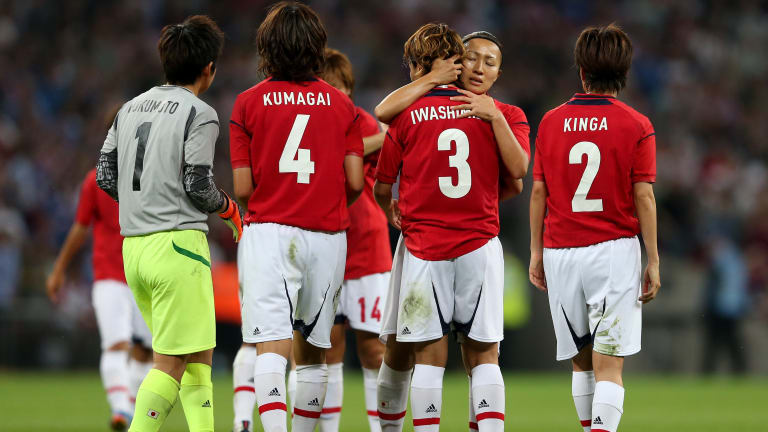
Qualifying Path
Luckily for Nadeshiko – or unluckily, depending on how you view it – as host nation of the Tokyo 2020 games, Japan has automatically qualified. While this path to the tournament is a blessing in that Nadeshiko’s place is guaranteed, it means that the team hasn’t had a competitive outing since the 2019 World Cup round of 16. Instead, the side has participated in the US-based Tournament of Nations – where it finished fourth out of four sides – and relied on friendlies to maintain match fitness and cohesion, including recent 7-0 drubbings of Panama and Paraguay.
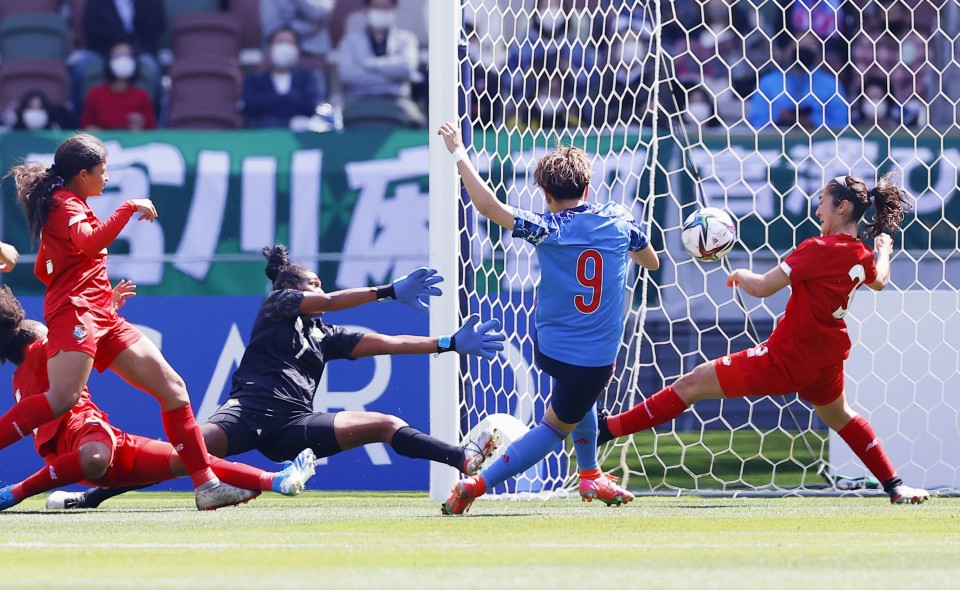
The Strengths
Put simply, Japan is one of the best-organised sides in women’s football. Even the casual observer of any tournament featuring Nadeshiko over the past decade would notice the team’s discipline, its unity of purpose, and its incredible fitness. Between running the United States into the ground over 120 minutes in 2011 and breaking the Matildas’ hearts in 2018, the Japanese mentality seems to be unbreakable when it comes to the crunch. That regimented style of play, combined with Japan’s trademark technique and patience, forces opponents into errors on both sides of the ball, allowing players like Iwabuchi, Mina Tanaka and 2020 Nadeshiko League MVP Yuika Sugasawa to punish even the smallest mistake.
The Challenge
Like all great sides, Japan’s weakness is nothing more than a tiny chink in its armour; equipped with fantastic technique, hive-like organisation and the ability to cut opponents apart with a single pass, finding a minute issue within the squad feels almost unfair. However, one potential issue for Nadeshiko at its home Olympic tournament is a lack of big game experience among the squad.
Having selected the second-youngest team at the 2019 World Cup, Takakura will likely again look to a fresh-faced playing group to carry the nation’s hopes all the way. Losing over 1000 international caps will force the regeneration of any squad. However, with Japan again the reigning Asian champions and the experience of France 2019 helping gel the team even further, the freshness of Takakura’s squad may bring more bravery and freedom than it does anxiety and hesitation.
Key Players
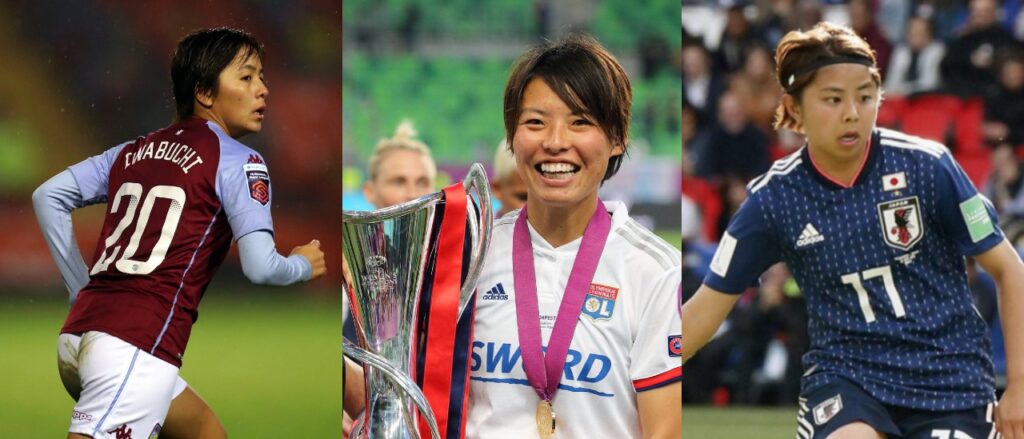
Saki Kumagai
Saki Kumagai is truly one of her country’s all-time greats and arguably the most successful Asian footballer of all time. Having won three consecutive All-Japan Under-18 Championships while at high school, Kumagai made her senior club debut the next year for Urawa Reds, balancing her football career with a degree at the University of Tsukuba. Having won the World Cup in 2011 – including scoring the winning penalty in the Final – Kumagai moved to 1.FFC Frankfurt, staying in Germany for two seasons before eventually moving to French champions Olympique Lyon. Taking to the increased intensity of the Lyonnais training regime like a duck to water, Kumagai quickly established herself as an integral player. With five Champions League trophies and a dozen French league and cup victories to her name, Kumagai is a genuine star in her homeland and abroad. She is rightly recognised as one of this tournament’s true attractions.
Narumi Miura
Born in Kawasaki, 23-year-old midfielder Narumi Miura is another of the players flourishing under Takakura’s tutelage. She was a part of both the under-16 and under-19 squads with which Japan conquered Asia in 2013 and 2015 respectively. Miura has since earnt her place in the senior national team through continued success with club side Nippon TV Beleza – now merged with J-League club Tokyo Verdy – including the 2019 Asian Women’s Club Championship. Mostly deployed as a deep-lying midfielder in the middle of Japan’s customary 4-4-2, Miura’s calmness and organisation in the middle of the pitch will be crucial as Japan look to play to their own tempo and control games through weight of possession.
Mana Iwabuchi
Japan’s highest active goalscorer and equal-sixth highest all-time, Mana Iwabuchi is one of the few surviving players from that famous night in Frankfurt (she was substituted on late, replacing Karina Murayama shortly before the shootout). Iwabuchi has featured in many of Japan’s greatest successes over the past two decades. These include the Asian under-19 championship in 2009 to the senior team’s victory in 2018, as well as being named as Asia’s best young footballer in 2008 and 2009, and winner of the Golden Ball at the 2008 under-17 World Cup. A tireless worker off the ball and intelligent finisher on it, Iwabuchi will again be key to Japan’s success, both as the vanguard of its disciplined defence and the outlet for its patient and incisive attack.
One to watch – Honoka Hayashi
23-year-old midfielder Honoka Hayashi, currently plying her trade with Stockholm-based club AIK, is one of the few current Nadeshiko players not to have come from the Big Two in Japanese women’s football, NTV Verdy Beleza and Urawa Reds. Having debuted at just 14 for second-tier side Cerezo Osaka, Hayashi made almost 200 appearances in her homeland, scoring 45 goals across all competitions, before making the move to Sweden.
Neat and powerful on the ball, Hayashi possesses a wicked shot from distance, an attribute she showed to great effect against the United Stated in the Under-20s Women’s World Cup. With an eye for a goal and the ability to send the ball there at a rate of knots, who knows – maybe by July she’ll be the next footballing Youtube Immortal?
What’s happening here? 🧐
Oh, it’s just Japan international and @AIKFotbollDam player Honoka Hayashi dribbling past ✌️Hammarby players in the second semi-final of Volkswagen Stockholm Challenge Cup on Saturday last weekend 🤷🏻♀️
📸 @mia_eriksson pic.twitter.com/jy25uoInDu
— Her Football Hub (@HerFootballHub) February 8, 2021
Prediction
It almost goes without saying but Japan’s fate in this year’s Olympic tournament relies on its group stage performance. Winning the group or finishing runners-up would reward Takakura’s charges with a less-difficult (note: not “easy”) quarter-final draw. However, finishing third would likely see the side looking down the barrel of a knockout match against foes the United States. Ultimately, there’s no reason Japan can’t snag a medal at these games – the bigger question is of which hue?
Read more: USA Olympic Preview
Matches
| Date | Local Time | AEST | Venue | Team A v Team B |
| 21/7/2021 | 7:30pm | 8:30pm | Sapporo Dome | Japan vs Canada |
| 24/7/2021 | 7:30 PM | 8:30 PM | Sapporo Dome | Japan vs Great Britain |
| 27/7/2021 | 8:00pm | 9:00pm | Miyagi Stadium | Chile vs Japan |
Follow Beyond 90's coverage of the Olympics.


